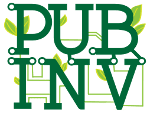Invent things that help humanity.
Please see below for an explanation of why the mission statement is being published at this time. If this mission statement appeals to you and you would like to learn more about Public Invention, please contact me <read.robert@gmail.com>, — or, respond here so that others can benefit from your response.
Mission
Invent things that help humanity.
Principles
Share everything equally and immediately.
Do not seek patents that imply a monopoly which is the antithesis of sharing.
Work in the light.
Publish successful inventions. Publish failures. Publish mediocrities. Publish everything. Work in the public for the public.
Keep it real.
Always be working towards a real invention that really helps a real human being. It is better to make something tiny and real than to make something grand and awesome that is not real. Inventing a bad roller skate is better than inventing the best toy space fighter.
Don’t build weapons.
Technology is not neutral. Some things are more easily used for good and harder to pervert than others. Invent things that strengthen, heal, help, educate, entertain, empower, enlighten, and ennoble humanity.
Seek egalitarian usefulness.
Inventions which make us more equal are better than inventions that make us less equal.
Collaborate whenever possible.
Even if it slows you down, try to involve others whenever you can. They deserve a chance to contribute as well.
Honor and value every contribution.
Some inventions require highly specialized knowledge and skill, such as advanced mathematics; all inventions require general communications. Both common and rare skills are needed and valuable.
Context
This year I am attempting to turn Public Invention into a true non-profit capable of receiving donations and having 501c3 tax deductibility status. This needs to be done now because a number of costs have arisen. In particular, I recently published a peer-reviewed academic journal article based on the Tetrobot Project. I was rather surprised to learn that I could make it open access (that is, free to all and not behind a pay wall) for $3000. I chose not to pay that personally (I have been self-financing Public Invention for the last 3 years, forgoing income), but it clearly is aligned with the principles of Public Invention to publish openly whenever possible.
A Visual Mission Statement
I created this mission statement using Plectica, a powerful visual concept mapping tool. Plectica allows you to share map; here is the link to this one: https://www.plectica.com/maps/VT6JNQ5AP


